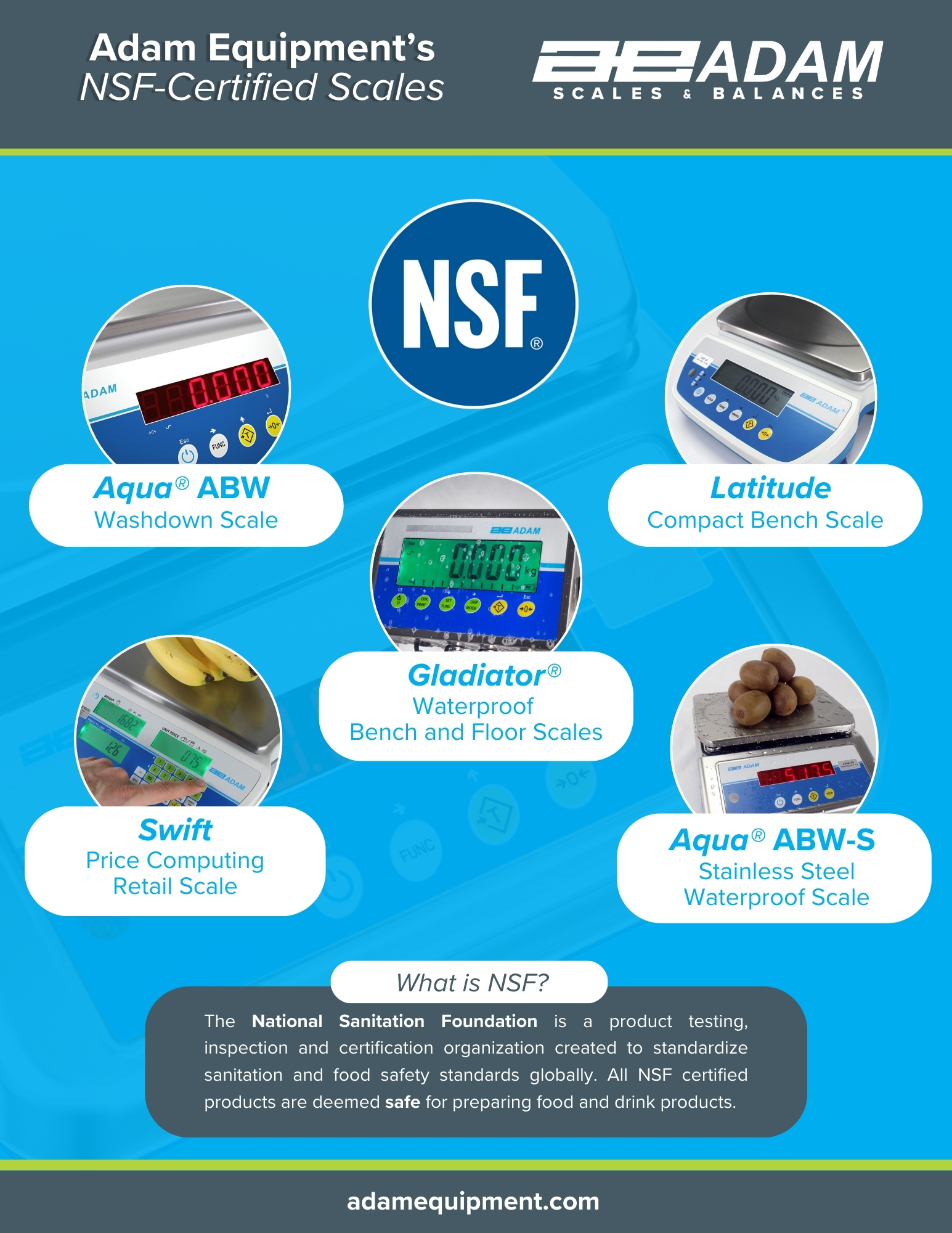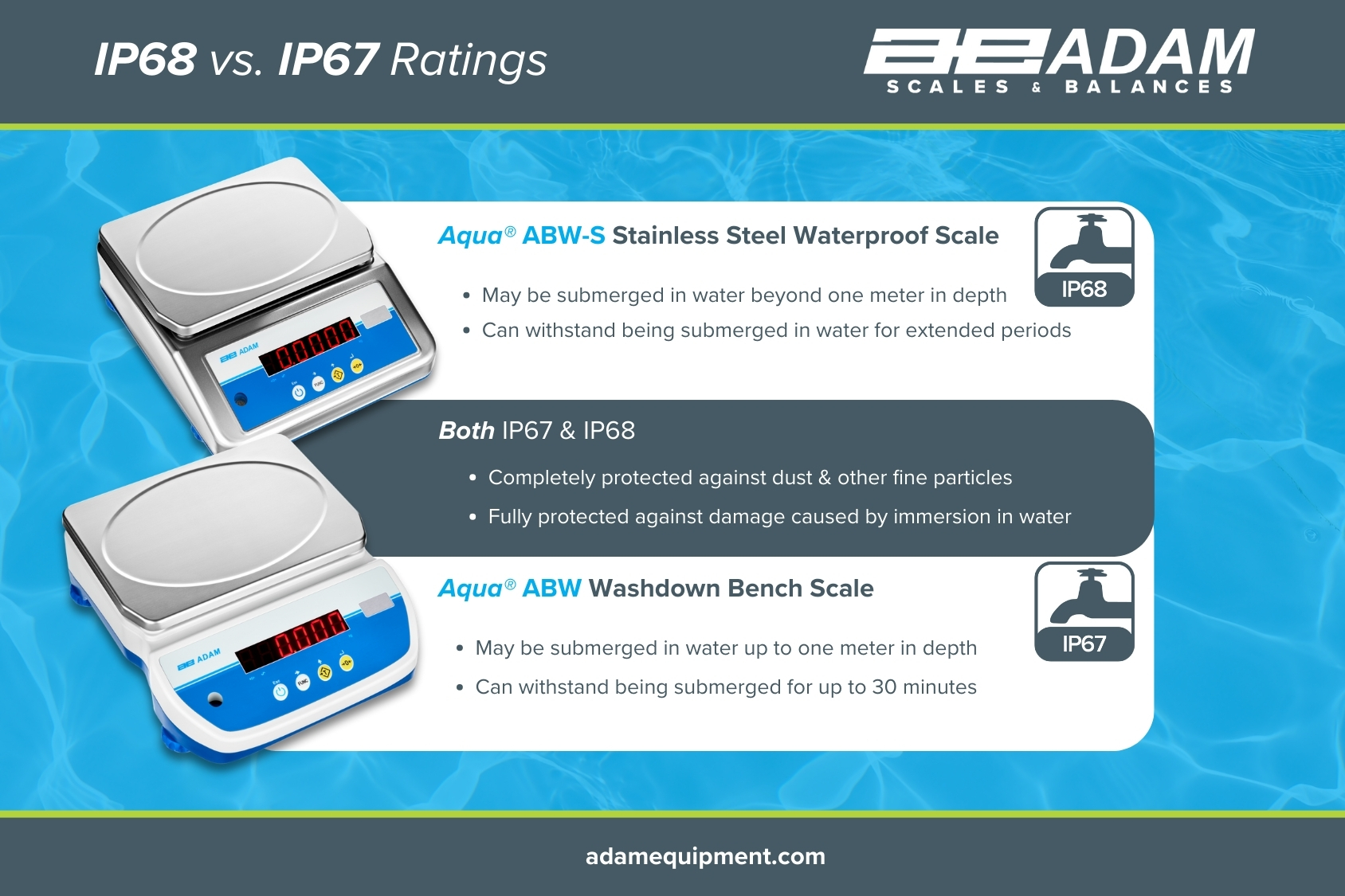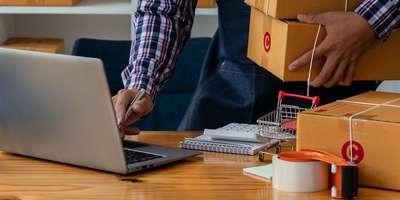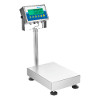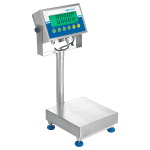
If you want to provide the best experience for your guests, investing in a great restaurant scale is a necessity. But what sets a great scale apart from one that’s just… alright? Let’s look at some of the traits that make a scale the cream of the crop.
NSF Certification
While not legally required, using a scale with an NSF certification is highly recommended. The NSF is the National Sanitation Foundation, an organization that standardizes food safety and sanitation. NSF approved scales are made from materials that don’t leach chemicals into food. They’re also easy to clean, resistant to bacteria and more.
Adam’s , , , and scales boast NSF certification. Between all five, there are a total of 39 models to choose from. If you want to ensure that the scales you’re using in your restaurant will meet the rigorous needs of a professional kitchen, you want to guarantee your scale is NSF certified.
Click on the image above to download our full infographic
Trade Approval for Selling by Weight
This one may not apply to every restaurant but would if yours sells meat or steaks by the ounce or pound. In these cases, you’re legally required to weigh them with a trade-approved scale. The government licenses legal-for-trade scales. In the US, NTEP is the certifying body. Trade-approved scales are precise and accurate enough to price by weight.
Using a trade-approved scale helps ensure that each customer is getting what they’re paying for. No more and no less. The customer is happy and your restaurant saves money.
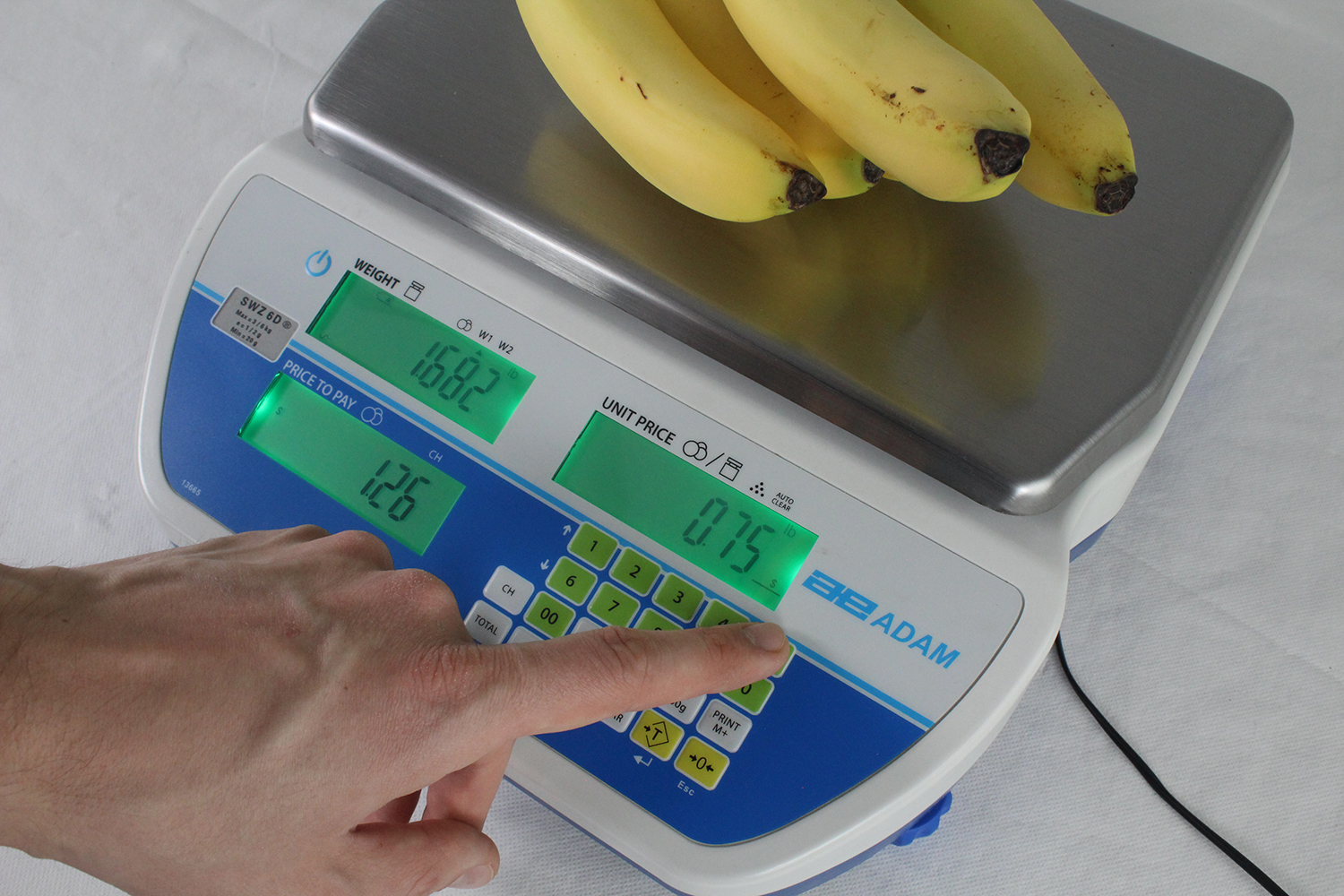
Adam’s are trade approved. Once you enter in the price per unit, SWZ calculates the total price for the customer automatically, providing the result as well as its components on three different displays for the price, unit weight and total weight. For transparency, these results are typically displayed not only on the front of the scale, but the rear or on a pillar as well, so customers can see. However, if you’d prefer to perform the calculations manually, Gladiator offers as well. This blog may help you make your choice.
Quick Stabilization to Keep Up with Busy Chefs
Restaurant kitchens are bustling and busy, especially on Friday nights and weekends. When 30 tables need their food, there’s no time to be waiting for your scale to weigh.
The length of time it takes a scale to settle on a result after you place food on the pan is called its stabilization time. Of course, the faster the better. The Latitude, ABW and ABW-S stabilize within one second. The Gladiator and Swift will have the result within two seconds. With weight information provided quickly, you’re able to maintain the speed and momentum you need to provide customers with delicious, high-quality food backed by data.
An IP Rating to Protect Against Spills and Messes
Kitchens are messy, with staff using raw meat, vegetables, fruits, oils, seasonings and other ingredients constantly. A great restaurant scale provides an IP rating to protect itself against damage from liquids and solids that may splatter, splash, or spill.
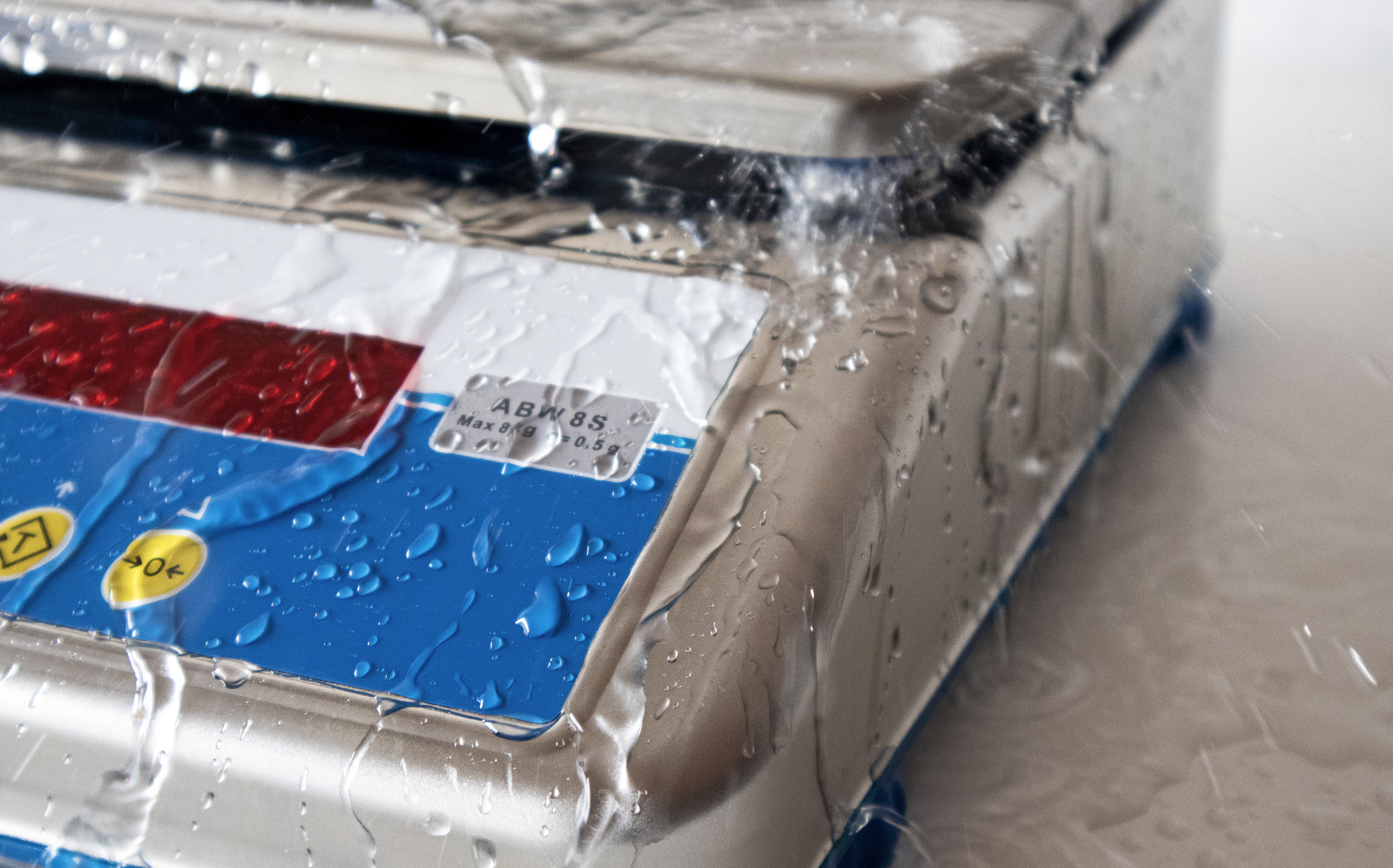
IP stands for Ingress Protection, and the higher a rating the scale has, the better it’s able to defend against liquids and solids. Adam Equipment’s Aqua ABW offers an IP67 rating. It has protection against fine solids like flour as well as from brief submersion in water when you need to hose it down in the sink.
Adam’s Aqua ABW-S and Gladiator series both feature an IP68 rating. This means you can hit them with jets and submerge them in water at deeper levels and for a longer time. This is perfect when you handle meat or fish, which spread bacteria quickly and can lead to cross contamination. Or, if something sticky gets on the scale and it you want to scrub it well. Whether it’s an IP67 or 68 rating, you’re guaranteed a quick clean-up so you can get back to food prep without delay.
Click on the image above to download a PDF of our infographic
Scales like Latitude or Swift that don’t come with an IP rating but provide sealed keypads also make wonderful restaurant equipment. You may just have to take a few extra precautions to prevent them from getting especially messy. For example, weighing items in a container or utilizing an .
Easy Tare Function
Speaking of containers: you get more precise results if you don’t include the weight of the container in the reading. The Tare function makes this possible. Adam Equipment scales offer the Tare function front and center on the displays.
Once you place an empty container on the pan, press the Tare button to remove the weight from the results. You can then add food to the plate and get an accurate reading. After removing the plate or container, you’ll find that the scale displays a negative number. To set the scale back to zero, you’ll need to hit the Zero button. Sometimes, Zero and Tare are the same button.
Tare improves your restaurant’s precision and reduces the chances of error, because you know you’re not accidentally assuming an ingredient or meal weighs too much when the plate is impacting the numbers.
Rechargeable Battery for Portability
Space is a hot commodity in many restaurant kitchens, so flexibility is a valuable trait in a scale. Every NSF-approved weighing scale Adam offers comes with a rechargeable battery, so you’re not tied to an electrical outlet or a specific area. If you need to plug the mixer in and there’s just not another spot for it, don’t worry! Your weighing scale will operate perfectly fine for many busy hours to come – the Latitude has a 210-hour battery life!
Multiple Weighing Units
Many recipes call for ingredients measured in grams, but we all know you always weigh a nice juicy steak in ounces. A scale (trade-approved if necessary) that can provide both units, amongst others like kilograms or pounds, will save you time and effort by increasing the versatility of your scale.
Looking to add a great scale to your restaurant’s kitchen? Contact the Adam team, we’ll provide a menu of options you can’t resist.


